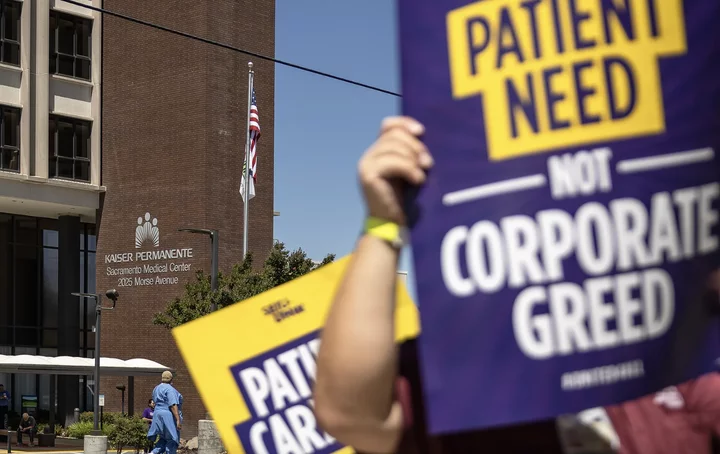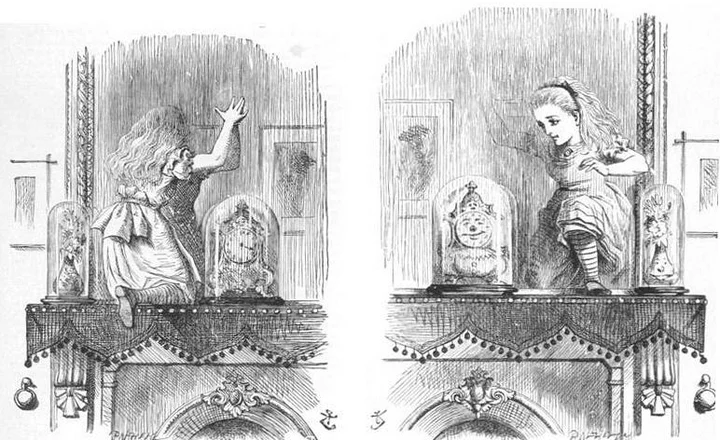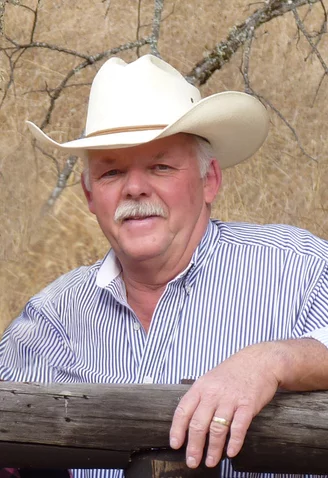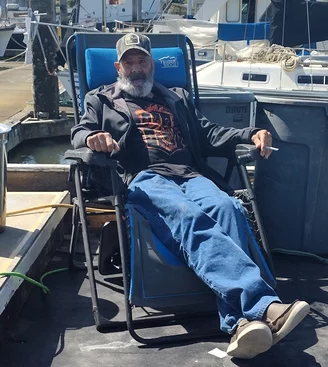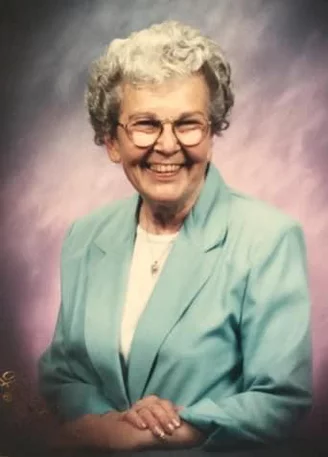California Needs Thousands of Nurses, but Leaders Can’t Agree on How to Fill Jobs
Kristen Hwang / Monday, July 31, 2023 @ 9 a.m. / Sacramento
Kaiser Permanente health care workers strike outside a Kaiser facility in Sacramento on July 25, 2023. Workers are on the picket lines to protest patient care crisis and unsafe staffing at Kaiser hospitals. Photo: Rahul Lal.
Ashley Hooks always planned to retire at Lakewood Regional Medical Center, where she has been a nurse for 12 years. But now, Hooks said, staffing issues are so bad and burnout so severe that she’s rethinking how she wants to spend the rest of her career.
Since the COVID-19 pandemic began, the number of nurses at the hospital dropped from just below 500 to 330 according to her union’s roster, said Hooks, who is 53.
“It wasn’t even this difficult during the height of the COVID pandemic,” she said.
Hooks’ stress reflects pressure many California nurses are under because of steep understanding that she and others say is driving many professionals out of the industry.
According to the Hospital Association of Southern California, nursing vacancy rates among local hospitals exceed 30%. Prior to the pandemic the average vacancy rate was 6%.
“Within the last year and a half or so, it’s really gotten worse,” Hooks said.
Now the Legislature is looking at several ideas to address the nursing shortage by bringing more early-career nurses into the field. But so far, the groups with most to gain — or lose — are at odds over how to solve the staffing problems afflicting California’s health care workforce.
Labor organizations and hospitals want nursing schools to prioritize certain applicants for admission, such as people who already have experience in the industry.
“We don’t have enough nurses entering the system as opportunities are opening up for them to leave the system,” said Peter Sidhu, a nurse and executive vice president of United Nurses Associations of California/United Health Care Professionals.
But the schools say that won’t help them graduate more nurses. They need more faculty and more hands-on training opportunities to increase class sizes.
Hospitals and unions say they don’t have much time to waste. Estimates show California faces a shortage of about 36,000 licensed nurses, according to the UC San Francisco Health Workforce Research Center on Long-Term Care.
Preliminary data from a statewide survey conducted in 2022 shows nurses cut back on the number of hours worked per week since 2020, and nearly half the workforce reports symptoms of burnout, said Joanne Spetz, director of the Institute for Health Policy Studies at UC San Francisco, who has studied nursing workforce issues for more than a decade.
More nurses, even those as young as 35, are thinking about leaving the profession entirely or retiring within the next two years, and half of the workforce had at least one patient die of COVID-19, Spetz said.
“There is a lot of trauma in the nursing workforce,” Spetz said. “The numbers are not good.”
Union-backed bills for nursing shortage
Labor advocates say the nursing shortage creates a vicious cycle. The nurses on shift wind up doing more work. They get burned out and flee the industry, worsening the problem.
Service Employees International Union (SEIU) and the United Nurses Associations of California/United Health Care Professionals turned their attention to the state’s community college system, where graduates can earn degrees to become nursing assistants, licensed vocational nurses or registered nurses. Both groups say community colleges offer the most affordable and efficient way to earn a nursing degree.
One of their ideas aims to help high school students get into nursing schools faster. Another would give entry-level workers the chance to move into more skilled and higher paid positions like nursing.
 Kaiser Permanente health care workers strike outside a Kaiser facility in Sacramento on July 25, 2023. Workers are on the picket lines to protest patient care crisis and unsafe staffing at Kaiser hospitals. Photo by Rahul Lal for CalMatters
Kaiser Permanente health care workers strike outside a Kaiser facility in Sacramento on July 25, 2023. Workers are on the picket lines to protest patient care crisis and unsafe staffing at Kaiser hospitals. Photo by Rahul Lal for CalMattersSidhu’s union is sponsoring a bill that would create a pilot program for high school students who take extra classes to have preferential admission into a community college nursing program.
A second measure, which is co-sponsored by SEIU and the California Hospital Association, would require community colleges to set aside 15% of enrollment slots for health care workers looking to further their education with a more advanced degree. They say helping current workers get higher-paying jobs within health care will help with retention.
“When we talk to our hospital members, workforce issues are the number one thing that keep them up at night,” said Jan Emerson-Shea, spokesperson for the California Hospitals Association. “We also hear from employees that they’ve tried getting into community college programs, but because they’re so impacted, it can take them three, four or five years to get into the program.”
California colleges skeptical of union bills
But community college and some university nursing school leaders contend neither bill will boost the number of graduates. Nursing programs are full, they say, and the proposals do nothing to expand the number of admission slots.
“These bills come up and I wonder who on earth would propose something like this to impact the community colleges without getting our input,” said Tammy Vant Hul, south region president of the California Organization of Associate Degree Nursing Program Directors.
Vant Hul is also dean of nursing at Riverside City College, the second largest community college nursing program in the state. High school students would not have completed enough prerequisites to apply directly to a nursing program, much less be guaranteed admission, Vant Hul said, and existing health care workers already get additional points during the admissions process.
The problem isn’t generating career interest in nursing; it’s creating more spots, program leaders say.
Karen Bradley, president of the California Association of Colleges of Nursing, said nursing programs have an overabundance of competitive applicants.
“We have not had a dip at all in enrollment in my program. I have a waiting list,” said Bradley, who is also dean of California Baptist University’s nursing program. “Every dean is going to tell you that they have a waiting list or enough qualified applicants that they turn away students.”
About 14,000 new students enrolled in nursing programs during the 2020-21 school year, according to the Board of Registered Nursing’s annual school report. That’s about 1,000 fewer students than the previous two years due to smaller class sizes, but schools across the state received more than 55,000 applications, a 10-year record.
The bills’ sponsors say they have spoken with the California Community Colleges Chancellor’s Office, which has not taken a position on any of the workforce bills.
Separate from the bills, United Nurses Associations of California/United Health Care Professionals lobbied for a $300 million investment over five years to double the state’s nursing school capacity. It was included in the state budget Gov. Gavin Newsom signed earlier this summer.
The details of how the money will be spent have not been decided, Sidhu said, but it could be used to increase faculty salaries and overcome other factors that limit class sizes.
More room needed for California nurse trainees
Representatives for nursing programs say the money will be helpful, but they’re worried about other bottlenecks that they say prevent them from enrolling more students.
Lack of nursing faculty caps class sizes, for instance, with potential educators instead choosing to make more money working in health care. They also say hospitals are not offering enough opportunities for their students to get hands-on training.
“As we move forward with the nursing shortage, clinical placements are an issue. So many hospitals kind of downsized their willingness to bring on students during the pandemic, and those spots never came back,” said Linda Zorn, legislative chair for the California Organization of Associate Degree Nursing and executive director of economic and workforce development for Butte-Glenn Community College District.
A third proposal in the Legislature attempts to clear that hurdle by guaranteeing clinical placement spots for community college students. A mix of opponents are fighting the bill, including hospitals, four-year universities and some community college advocates who say it will take spots away from other students and overwhelm nursing staff.
“Some hospitals aren’t big enough. They can’t take on hundreds of students. They have 25 beds,” said Sarah Bridge, senior legislative advocate for the Association of Health Care Districts, which represents primarily small, rural hospitals in the state.
During the 2020-21 school year, the most commonly cited reason by nursing schools for decreasing class sizes was “unable to secure clinical placements,” according to the Board of Registered Nursing’s annual school report, in part due to workforce challenges resulting from the pandemic. The report states that more than 15,000 students were impacted by restricted training spots compared to roughly 2,200 students during the 2018-19 school year.
Bridge said many small and rural hospitals also are teetering on the edge of a financial crisis. It costs about $7,000 to train one student, not including the salary cost of nurses who supervise students. Multiply that by the number of student trainees accepted and some hospitals can’t foot the bill, Bridge said.
Zorn said nursing schools know they have to be sensitive to how many students get sent to any one hospital, which is part of the reason many are skeptical of the bill. The number of student training spots recently has been limited by the profession’s thinly stretched workforce.
“It can close down the rural hospitals if you don’t have the correct staffing,” Zorn said.
Leaders from four-year degree programs also say the proposal would displace their nursing students in favor of community college students.
The bill sponsors say the intent of the legislation is to create more training capacity, not to displace existing students, as some critics have claimed, said Eric Robles, legislative director for United Nurses Associations of California/United Health Care Professionals.
“If hospitals are getting bailouts, I would sure hope everybody believes our nurse workforce needs a bailout too,” Robles said. “And that bailout can come through strengthening the pipeline, growing the workforce and maintaining the workforce.”
###
CalMatters.org is a nonprofit, nonpartisan media venture explaining California policies and politics.
BOOKED
Today: 10 felonies, 10 misdemeanors, 0 infractions
JUDGED
Humboldt County Superior Court Calendar: Today
CHP REPORTS
No current incidents
ELSEWHERE
Governor’s Office: Governor Newsom signs Executive Order to assist Imperial County’s recovery following 2025 August Monsoon Storms
RHBB: Body Recovered Off Humboldt Coast After Fisherman’s Discovery
Governor’s Office: Governor Newsom on Republicans losing challenge to new Congressional maps at U.S. Supreme Court
KINS’s Talk Shop: Talkshop February 4th, 2026 – Steve Madrone
GROWING OLD UNGRACEFULLY: The Forking Paths of the Multiverse
Barry Evans / Sunday, July 30, 2023 @ 7 a.m. / Growing Old Ungracefully
“The multiverse is undoubtedly catchy. It appeals to a generation that has grown up with (among other things) the Marvel Cinematic Universe; an audience fascinated by the notion that the multiverse of Doctor Strange might actually be true.”
— Jim Baggott, science writer, in Prospect
###
Between the MCU, “The Man in the High Castle,” and a bunch of otherwise sober-minded theoretical physicists*, multiverse theories seem to have become entrenched in the popular worldview of our time. They’re also pseudoscientific bullshit. Lacking a scrap of empirical evidence, any multiverse theory shares the same memespace as astrology, god or Tinkerbell.
* Like Brian Green, cosmologist and science popularizer, who says that multiverses “are turning out to be harder to avoid than they are to find.”
Alice entering the looking-glass world, an alternative universe dreamed up by Lewis Carroll in the 1870s, as illustrated by John Tenniel. (Check out Mirror, Mirror from the original Star Trek series.) (Public domain)
The most general idea is that multiverses solve the “fine-tuning problem”: We live in a Goldilocks universe, one in which the physical constants that shaped its evolution to allow for us must have been fine-tuned — they’re just right — otherwise we wouldn’t be here. Change any of those constants by a smidgen, and you wouldn’t get hydrogen atoms, or stars, or sufficient time for life to evolve. According to the multiverse theory, the only way for our universe to be so finely tuned is that there are zillions (perhaps an infinity) of universes, and that at least one of them — ours, for instance — happens to have the right conditions to spawn intelligent life. If, on the other hand, there’s only one universe, the odds of it having just those tightly-constrained conditions is too unlikely.
The flaw here is that we have no idea whether the conditions in our universe are likely or unlikely, since we only have a sample of one. The only way to judge odds is to take a representative sample. (If you’d never seen a coin before, and you observed a single flip of a coin landing heads, by that reasoning, you’d assume all flips would come up heads.)
So you don’t need multiverses. It may be that our universe is the way it is because it’s the way it is. No problem, nothing to explain. See this for a fuller discussion.
Another reason given as evidence for multiverses is that they solve the so-called “measurement problem” of quantum mechanics. The “many worlds” interpretation of QM says that, every time a measurement is made, like a photon traveling through one of two slits, two (or more) universes appear, with each outcome happening in its own brand-new universe. But we only see one of them. According to this version of many worlds, anything that is possible is real, in some universe; in another universe, your doppelganger is reading this right-to-left.
This, like the many other ideas supporting the multiverse theory, suffers from the same problem: multiverses are unobservable. They’re completely, 100% undetectable, now or ever. (If they were detectable, they wouldn’t be multiverses, they’d be part of our universe.) Since, by definition, they’re disconnected from our universe, no observation can ever prove their existence, and to claim otherwise is not scientific. But by the same token, it’s unscientific to claim their non-existence, either. Like god (or fairies, or the simulation hypothesis, or the flying spaghetti monster) multiverses are ascientific: Science has nothing to say about them one way or the other. If you want to believe in them, there’s probably no harm in it, like belief in Tinkerbell (which makes her real!). Unlike believing in, say, a vengeful god watching your every move, which can cause real harm.
Bottom line: Since there’s no possible way to detect or even to test for multiverses, they’re metaphysical, outside of the purview of science.
###
NOTE: None of which takes anything away from my heartthrob Michelle Yeoh, who discovered her many alter egos (besides that of an overwhelmed laundromat owner) in the parallel universes of Everything Everywhere All at Once, winner of seven Oscars. Not to mention Jamie Lee Curtis. Loved it!
THE ECONEWS REPORT: What’s a Walkable Community?
LoCO Staff / Saturday, July 29, 2023 @ 10 a.m. / Environment
Walkability expert Dan Burden took Humboldt by storm last week, leading walk audits in Blue Lake, McKinleyville, Arcata, and Eureka. Dan joins the show to talk about how we can rethink our road system to be safe for all people on foot, on bikes, and in cars.
READ MORE:
- ”How Do We Make Our Communities More Walkable? Dan Burden Knows, and He’s Coming to Humboldt to Help Us Out,” Lost Coast Outpost, July 14.
- ”In Conversation With an Expert: Dan Burden of Blue Zones,” Strong Towns,” April 19.
HUMBOLDT HISTORY: The Son of Abolitionist John Brown Ran a Very Successful Humboldt County Sheep Ranch
Harriet Tracy DeLong / Saturday, July 29, 2023 @ 7:30 a.m. / History
Nellie Brown Groves, the youngest child of Salmon and Abbie Hinckley Brown, was born in Rohnerville in 1878. Today she is living in Poulsbo, Washington.
I first learned of this remarkable little lady when I was checking out a batch of books about the abolitionist John Brown, from the local library. Susan Groves, a young library assistant, asked me why I was interested in John Brown. I explained that the widow of John Brown had once lived in Humboldt County, as had several of his children. I was just curious about all the Browns.
“Why, I’m descended from John Brown; my grandmother has lots of pictures and clippings about the family; I have a pebble that was picked up in the creek that runs through the Salmon Brown property at Bridgeville. I’ve never been there,” she said, “but I’ve heard about it from my greatgrandmother.”
Thus I became acquainted with the Groves family of Bainbridge Island, who pride themselves in the accomplishments of their famous ancestor.
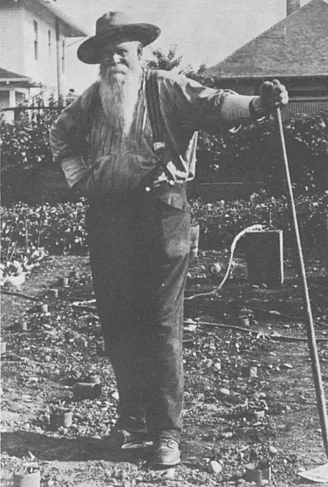
Salmon Brown at his home in Portland. Photo courtesy of the Groves family, via the Humboldt Historian.
According to Marjorie Groves, Nellie’s daughter-in-law, Mrs. Groves has a few vivid memories of her Humboldt days. Her earliest memory is of a wagon trip from Bridgeville to visit her grandmother, Mary Brown. It was a trip that took all day and involved crossing a large body of water, so it seemed to the little girl. (Since Mary Brown left Rohnerville in the winter of 1881, Nellie was probably about 2 1/2 years old at the time.) She remembers the two-mile walk to school and the lady who came out from town to give her violin lessons.
Salmon Brown had operated a flourishing business out on the Bridgeville ranch since 1875. The 14,000 black Spanish Merino sheep that ranged over 3,000 acres made him a prosperous man. It is interesting to note that Salmon’s biography in Elliott’s History of Humboldt County, 1882 made no mention of the fact that he was the son of a man whose deeds inflamed the nation. Apparently, it was not a negative reaction that he feared, but a well-meaning public who was determined to overwhelm the family with kindness. Twice Brown felt compelled to publish in local papers a refutation of the rumor that his mother and his family were in dire financial straits.
The May 27, 1871 Humboldt Times carried a notice signed by Salmon Brown and his sister, Sarah, stating that “… John Brown’s family… are all well and are doing well, and wish to maintain decent self respect and merit the reputation of having ordinary sagacity, if possible …” Ten years later the Times carried a similar statement again.
It was in 1891 that the Brown family moved to Ferndale, where they spent the next two years. According to the memoirs of Nellie’s mother, Abbie, their departure from the Bridgeville ranch, and subsequently from Humboldt, was precipitated by the hard winter of 189091, when they lost 8000 sheep. (The Rohnerville Herald reported a fire that devastated 2000 acres of the Brown ranch in the fall of 1890.) Then, in 1893, came a sharp drop in the wool market, heralding a four-year national depression. Proud Salmon Brown was suddenly destitute.
After more than 20 years in Humboldt, the family packed their wagons and headed north to Salem, Oregon. Of the eight children, only Cora and Minnie, who had accompanied their parents on the trip from New York to California, remained behind. Cora had died in 1878 after a fall from a bucking horse. Minnie had married Tom Burns and was busy raising her family.
In Salem, Salmon set up a meat business. Nine years later, when the two boys, John and Edward, left the States to try their luck in Alaska, he and his wife made their home in Portland.
It was in these later years that Salmon and Abbie began to look back on their lives and realize that they were an important footnote in the history of the United States. Abbie’s memories of their hazardous journey across the plains in the midst ofthe Civil War were published in the Portland papers. Salmon’s articles about his famous father appeared in several west coast publications.
During the last years of his life, he was bedridden. In 1919, Salmon Brown, aged 82, took his life with a gun said to have a sentimental connection with his father, John Brown.
Talented Nellie was 14 when the family came to Oregon. In Salem she continued her musical studies and added art to her widening interests. By the time she was 18, Nellie had developed not only musical and artistic expertise, but also a certain flair for the dramatic. While she played violin for the Presbyterian Church orchestra in Salem, she heard about the work of the Salvation Army. Entranced by the Army’s good works and the opportunity it offered for travel, little Nellie Brown became Lieutenant Brown and played in the Army Band.
A year later she met her future husband, Edward Groves. The two worked up a vaudeville act and toured the circuit for a few years. Finally, they settled in Washington state, where Edward took up the practice of dentistry, first in Aberdeen and later in Seattle. Nellie bore him one son, Wellington.
At the age of 85, she was once again deeply involved in the musical world. She organized the Seattle Senior Citizens String Ensemble, in which she played first violin. For five years she kept this group playing at churches, at social groups, and in the lobbies of Seattle’s hotels. Failing eyesight forced her to give up these activities, but she was able to keep house alone for several more years before the disabilities of her 98 years confined her to a nursing home.
On July 17, 1980 five generations of John Brown’s family gathered around a cake lit with 102 candles to sing Happy Birthday to his grandaughter, Nellie Brown Groves.
###
The story above was originally printed in the May-June 1980 issue of The Humboldt Historian, a journal of the Humboldt County Historical Society, and is reprinted here with permission. The Humboldt County Historical Society is a nonprofit organization devoted to archiving, preserving and sharing Humboldt County’s rich history. You can become a member and receive a year’s worth of new issues of The Humboldt Historian at this link.
OBITUARY: Kim Eugene Lucas, 1950-2023
LoCO Staff / Saturday, July 29, 2023 @ 6:56 a.m. / Obits
Kim Eugene Lucas — husband, father, grandfather, brother and friend — passed away unexpectedly on July 14, 2023. Hardworking, kind and compassionate, Kim’s passing was a great loss for many.
Born on March 25, 1950 in Scotia, Kim was the firstborn child to his parents Eugene and Ceva Lucas. Kim attended Fortuna High School, and many in his class were lifetime friends. He greatly enjoyed the four years he played as running back for the Fortuna High Huskies. Later, Kim attended Baylor Technical School in Texas, receiving his certification in dental technology and prosthodontics. Kim joined the Weber Dental Lab in 1975, working with David Weber who was a close friend for many years. Kim branched out to launch his own successful dental lab in 1980.
Kim was devoted to his work at Eaton Roughs Ranch. He loved sharing his cowboy life with others, but most of all with his son Kyle and grandchildren Addy and Carson. One of his great life joys was the annual roundup and branding at the ranch. He was appreciative and proud of the way he and his siblings worked together to make ranching a success, and whether hunting, working cattle, riding horses or spraying yellow star, ranch life for Kim was a continual adventure.
Kim found a new kind of joy in retirement. He and Barb loved their time spent at their second home in Arizona. Kim and Barb shared a loving relationship for 26 years. He supported Barb with his calm, quiet and steadfast demeanor, always planning their next adventure. His selfless personality helped guide Barb and his loved ones through both happy and difficult times. Kim was especially grateful to have spent time with his daughter Kari and family in New Mexico this past Spring. Kim’s appreciation for life was also seen over the years in his support for Kyle and Todd’s sporting events. Kim was also grateful for the time with his best friend for the last seven years, Leo.
Kim’s memberships included the Sonoma County Trailblazers, Humboldt County Cattlemen, California Dental Association, and he was a founding member of the Yager-Van Duzen Environmental Stewards.
He is survived by the love of his life for 26 years Barb Bugbee Lucas, his daughter Kari (Dennis) Dean, son Kyle (Lindsey) Lucas, stepchildren Todd (Heather) Lowder, Cassidy Ross, and Travis (Jessica) Genzoli. Kim also leaves behind grandchildren Ryan (Aneasha) Dean, Christian (Kylee) Dean, Addy Lucas and Carson Lucas, Leo and Romeo Ross, Ethan and Piper Lowder, great grandchildren Asher and Xavier Dean. He is also survived by his sisters Denise (Kenneth) Christen and Dana (Dean) Hunt; step-siblings Courtland (Dana) Ellis, Mark Ellis, Diana (Sid) Renner Noyes, Michael (MariLou) Renner, Cecelia (Larry) Renner Roubidoux, and Chris (Sabina) Renner. He is survived by his stepmother Dianne Lucas, nephews Jason (Jenna) Hunt, Rhett (Kristi) Imperiale, and niece Rene (John) Imperiale-Egan. Kim will also be greatly missed by his sisters-in-law and the families of Connie (Dave) Jones, Peggy (Louie) Valadao, and Kristine (Steve) Neel. He is predeceased by his father Eugene Lucas and his mother Ceva Lucas Renner, and father-in-law/friend Bob Bugbee.
A celebration of life is planned on August 31st at the Fortuna River Lodge at 2 p.m.
In lieu of flowers, contributions may be made to the Sonoma County Trailblazers, 3355 Regional Parkway, Santa Rosa, CA 95403 — or a charity of your choice.
###
The obituary above was submitted on behalf of Kim Lucas’ loved ones. The Lost Coast Outpost runs obituaries of Humboldt County residents at no charge. See guidelines here. Email news@lostcoastoutpost.com.
OBITUARY: Richard (Alan) Burns, 1955-2023
LoCO Staff / Saturday, July 29, 2023 @ 6:56 a.m. / Obits
Richard (Alan) Burns
December 11, 1955 — June 6, 2023
It is with great sadness that we have to announce the passing of Richard Alan Burns (67) on June 6, 2023. He passed away peacefully, just as he wished, while watching TV and resting in bed at his daughter’s home in El Centro.
Alan was born in Eureka on December 11, 1955 to Richard and Carmen Burns.
Alan went to South Bay Elementary School and graduated high school in 1974 from Jacobs Junior High School. Here is where he met a group of kindred spirits who affectionately called themselves the “Alley Gang” — Jerry Alley, Orlan Larson, Phillip Sanchez, Paul McKnight, and the late Matias Salas, Don Thomas, Darrel Crocket, David Alley, Steven Burres and Jake Mosely.
Graduating from high school, he decided to join the forestry service as a firefighter. He had always been passionate about nature and the outdoors, and this seemed like the perfect way to combine his interests.
After that, Alan decided to embark on a journey across the western United States. He had always been fascinated by the natural beauty of this region and was eager to explore it firsthand. However, as much as he enjoyed his time on the road, he returned to Eureka with the passing of his mother.
For the next 30 years he worked as a commercial fisherman on various boats in Eureka and Coos Bay. For many of those years he worked beside his two brothers Kenny and David. Among his peers, he was affectionately known as “Big Al”. He will forever live on in the hearts of the fishing community as a delightful jester who’s quick wit and hilarious commentary brought laughter among the crew.
He never cared about conforming to society’s norms or pleasing others. Instead, he followed his heart and did what made him happy. His carefree lifestyle was something that many people admired, but few had the courage to emulate.
Alan may not have been perfect, but he definitely got one thing right: his unconditional love for his daughters, Valerie and Lacey. With the support of their patient mom, Nancy Nichols, Alan always made sure to show his love and pride for his girls in every way possible. Whether it was attending their school events, cheering them on at their sports games, or just sitting down with them for a family dinner, Alan never missed an opportunity to be there for his family.
Alan was a true nature lover. He loved exploring beaches, camping in the woods, and taking refreshing dips in rivers and lakes. Fishing was one of his favorite pastimes and he always kept a fishing pole handy. He loved the challenge of trying to catch a big fish, but he also appreciated the simple moments of just sitting and enjoying the scenery. He had a special bond with nature and was blessed with a green thumb. He and his close friend David Cooper spent countless years working together nurturing their greenery with passion and dedication.
Alan was a man of many passions. One of his favorite activities was taking his canoe out on the Humboldt Bay and seeing where it would take him. He was also a rock enthusiast. Every time he went outdoors, his eyes were always scanning the ground for that one-of-a-kind gem. He spent hours upon hours searching for the perfect rocks to add to his collection and was always happy to show off his latest finds. Another hobby of Alan’s was archaeology. He was an amateur, but loved the thrill of unearthing old bottles and other relics from the past. He would often spend hours digging around the Eureka area, looking for hidden treasures. It was a way for him to connect with the past and feel a sense of excitement about what he might find.
Alan also loved traveling the open road in his beloved truck and seeing where it would take him. He had countless memories of road trips, camping trips, and spontaneous adventures. He loved the freedom and independence that came with being behind the wheel of his truck. Whether he was driving through the mountains or cruising along the coast, his adventurous soul always led the way. Sometimes he had a plan, but more often than not, he just let the road guide him. And no matter where he ended up, he knew his truck would be there with him, ready for the next adventure.
Alan is preceded in death by his parents, incredible big brother Kenny Burns, favorite nephew Kenny Alan Burns and granddaughter Adaline Pritt. He is survived by his dedicated daughters, Valerie Pritt (husband Joshua) and Lacey Bresino (husband David), his caring siblings Linda Alora (husband Mike), David Burns (wife Kim), Patrick Burns (wife Rachel) and Sister-in-law Robin, his loving grandchildren Vivian, Rockwell, David Jr. and Fletcher and many nieces and nephews.
Memorial Service will be held Saturday, August 12 , 12 p.m. at the Woman’s Club in Samoa.
###
The obituary above was submitted on behalf of Alan Burns’ loved ones. The Lost Coast Outpost runs obituaries of Humboldt County residents at no charge. See guidelines here. Email news@lostcoastoutpost.com.
OBITUARY: Gwenn Lynnore Cloepfil, 1931-2023
LoCO Staff / Saturday, July 29, 2023 @ 6:56 a.m. / Obits
Gwenn Lynnore Cloepfil
Feb. 9, 1931, to May 21, 2023
Gwenn Lynnore Cloepfil passed away on May 21, 2023, at Timber Ridge in Eureka, where she spent the last nine years due to multiple medical issues. She was a cherished woman who was always pleasant and caring to all people who crossed her path for her entire life. Her family will miss her dearly. She was special.
Gwenn was born Feb. 9, 1931, as the second child of Ruth and Lynn Switzer. She was raised in Newberg, Oregon, along with her older brother Hugh. Gwenn loved Newberg and always spoke of it in glowing terms. While growing up, Gwenn picked berries, green beans and other produce to earn money for school clothes. Times were hard, and she never shied away from hard work and never complained. She was married two weeks after graduating from high school to Howard Melvin Cloepfil in 1949. Her mother sewed her wedding dress, and Gwenn grew the flowers for her wedding. Gwenn waitressed and worked in a jewelry store while Howard finished college at Oregon State University. Howard and Gwenn were a real team and they were devoted to each other. Gwenn had never wanted to be anything but a wife, mother and homemaker. She kept the home going and was at Howard’s side while he progressed in the J. C. Penney, Co. which involved multiple moves in California and Oregon over the years. Howard passed in 2014 and that was very hard on Gwenn, as he was her rock.
Gwenn downplayed her skills, as she was very humble, but she was amazingly clever about many things. Besides her multiple crafts, she could knit, sew, embroider and tat. Gwenn was also great at fixing things around the house as Howard worked long hours, so some handyman duties fell to her. She even installed a tube radio in a 1947 Dodge that the family was fixing up to be her kids’ first car. Gwenn also loved watching sports, gardening, singing harmony to old songs and slot machines at casinos. Daughter Tamara got the love of following sports from both her parents, and it was great to go to a couple Crabs games with Gwenn when Timber Ridge attended a game. Gwenn was always searching the ground and coin returns for coins, and she found a lot of them! She kept her eyes open for finding stuff, and she even found a diamond in a slot machine mixed in with the nickels in Reno.
Gwenn loved people and wanted everyone to be happy and comfortable. This meant she often put other’s needs before her own. At Timber Ridge, she always had a smile or compliment for staff and other residents. We have never heard of anyone who didn’t love Gwenn.
Gwenn was preceded in death by her husband Howard, brother Hugh Switzer, and parents Ruth and Lynn Switzer. Gwenn is survived by her children Tamara Lynn Clohessy, of McKinleyville, and Scot Douglas Cloepfil (Carol), of Eureka. She also had two grandchildren, Terence Clohessy (Nancy), of Vacaville, and Travis Clohessy (Elizabeth), of Eureka. The recent joys of her life were her great-grandchildren Murphy and Addison Clohessy. Pictures and visits with them always brought her so much happiness. She cherished time with her loved ones.
A huge amount of gratitude is sent to Dr. Stephanie Dittmer who went above and beyond in her care on multiple occasions. The family also wishes to thank Timber Ridge Eureka for her years of care and multiple kindnesses shown by staff there. Hospice of Humboldt was also very helpful in her last days.
No services were held and the family gathered recently to remember her fondly. If you wish to honor Gwenn, please consider a donation to Hospice, a mental health charity, as Gwenn was a volunteer for Sempervirens in the 1970s, or any sports organizations that encourage future athletes.
###
The obituary above was submitted on behalf of Gwenn Cloepfil’s loved ones. The Lost Coast Outpost runs obituaries of Humboldt County residents at no charge. See guidelines here. Email news@lostcoastoutpost.com.

